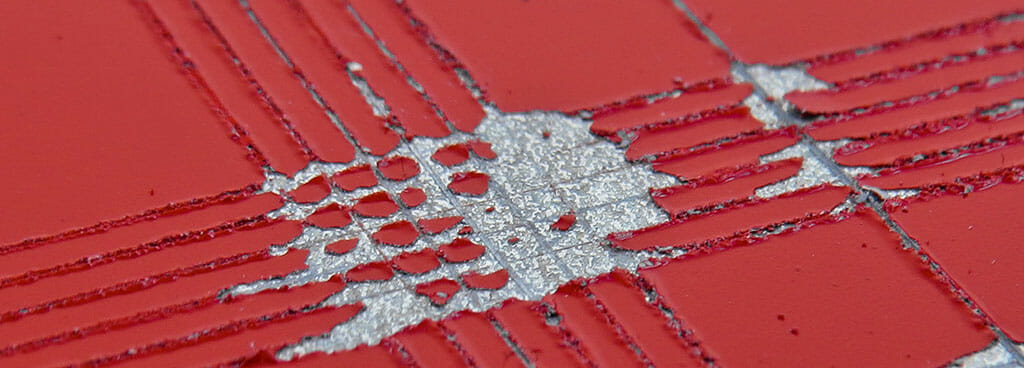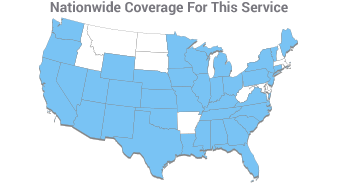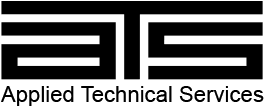- Home
- Services/IndustriesServicesindustries
- About Us
- LocationsStatesAccordion ContentAccordion ContentAccordion ContentAccordion Content
- Job Openings
- Quick Links
- ATS Family

ASTM D3359 Testing
Applied Technical Services conducts ASTM D3359 testing to measure the adhesion of film coatings on metallic substrates. Adhesion tests intentionally produce coating failures that allow experts to evaluate the strength of the adhesive bond between a coating and a substrate. These tests help determine a material’s suitability for specific tasks in specific environments and provide information relevant to research, development, and quality control.
What is ASTM D3359?
ASTM D3359 is a visual adhesion test used to evaluate the adhesion strength between a coating and substrate. The standard consists of two test methods, the x-cut test and the crosscut or cross-hatch test.
X-Cut Test
Primarily used for coating systems thicker than five mils, the X-cut test is a field test that evaluates the adequacy of a coating’s adhesion. During the procedure, technicians use a sharp cutting tool to make an “X” shaped cut in the film. The two cuts are about 1.5 inches long and intersect near the middle of the ‘X’ shape at an angle between 30 and 45 degrees. Technicians repeat the process until the incision penetrates the coating and reaches the substrate. Next, technicians apply a three-inch piece of tape to the intersection of the X for 30 to 90 seconds before removing the tape. Technicians rate the adhesion on a scale of 0 to 5, with zero being the weakest and five being the strongest. For example, a new coating should have little to no peeling, earning the coating a rating of 4 or 5, whereas coatings that suffer from excessive peeling or removal will be rated closer to 0.
Cross-Hatch Test
During the procedure, technicians cut a lattice pattern into the coating, penetrating down to the substrate. Technicians then brush the test area to remove debris and apply adhesive tape to the entire lattice pattern before quickly removing the tape. Technicians evaluate the test area to compare the test results to the corresponding ASTM standards, which exist on a scale that ranges from 0B to 5B. 0B represents the weakest coating classification, whereas 5B represents the strongest adhesion. For example, ASTM 5B illustrates that the cross-hatch test failed to yield a coating failure, and the subsequent classifications each represent a high percentage of coating failure in the test area.
ASTM D4060 Testing Explained More About Our ASTM Testing Capabilities
Applied Technical Services offers various ASTM-compliant services that benefit numerous industries, including:
- Aerospace
- Automotive
- Chemical
- Construction
- Consumer Products
- Healthcare
- Manufacturing
- Nuclear
- Oil & Gas
- Power Generation
Our experienced team uses our advanced facilities to conduct ASTM testing services that address our client’s specific needs and requests. We house multiple A2LA-accredited facilities specializing in chemical, metallurgical, mechanical, and environmental testing. We provide competitively priced services with quick turnaround times at the convenience of our clients to ensure that their experience with us is professional and positive. Please submit an online request form or call +1 (888) 287-5227 to request service from our ASTM testing lab.

Request Form
"*" indicates required fields
ASTM Links
- Accredited ASTM Testing Laboratories
- ASTM A370 Testing
- ASTM B117 Salt Spray
- ASTM B117 Testing
- ASTM B137 Testing
- ASTM B368
- ASTM Brinell Hardness Testing
- ASTM Coating Adhesion Testing
- ASTM Corrosion Testing
- ASTM C273 Testing
- ASTM C633 Testing
- ASTM C393 Testing
- ASTM D999 Testing
- ASTM D1002 Testing
- ASTM D1349 Testing
- ASTM D1370 Testing
- ASTM D2240 Testing
- ASTM D2244 Testing
- ASTM D2247 Testing
- ASTM D2344 Testing
- ASTM D2794 Testing
- ASTM D3039 Testing
- ASTM D3039 Testing Services
- ASTM D3163 Testing
- ASTM D3170 Testing
- ASTM D3359 Testing
- ASTM D3418
- ASTM D3575
- ASTM D3654 Testing
- ASTM D4060 Testing
- ASTM D412 Testing
- ASTM D4332 Testing
- ASTM D4541 Testing
- ASTM D471 Testing
- ASTM D523 Testing
- ASTM D522 Testing
- ASTM D5229 Testing
- ASTM D5296
- ASTM D5297
- ASTM D5865 Testing
- ASTM D5276 Testing
- ASTM D618
- ASTM D618 Testing
- ASTM D638 Testing
- ASTM D638 Testing Services
- ASTM D642 Testing
- ASTM D6869 Testing
- ASTM D7091 Testing
- ASTM D732
- ASTM D732 Testing
- ASTM D785
- ASTM D7869 Testing
- ASTM D7617 Testing
- ASTM D790 Testing
- ASTM D8142 Testing – VOC
- ASTM D882 Testing
- ASTM E415 Testing
- ASTM E8 Metal Tensile Testing
- ASTM E831
- ASTM E1086 Testing
- ASTM E111 Testing
- ASTM E1251 Testing
- ASTM E1545
- ASTM E132 Testing
- ASTM E1820 Testing
- ASTM E1820 Testing Lab
- ASTM E190 Testing
- ASTM E399
- ASTM E45
- ASTM E466
- ASTM E606 Fatigue Testing
- ASTM E647
- ASTM F88 Testing
- ASTM F146 Testing
- ASTM F152 Testing
- ASTM F24 Inspections
- ASTM F519 Embrittlement Testing Services
- ASTM F963-11 Testing
- ASTM F963-16 Testing
- ASTM F1140 Testing
- ASTM F1929 Testing
- ASTM F1980 Testing
- ASTM F2096 Testing
- ASTM F2824 Testing
- ASTM G154 Testing
- ASTM G155 Testing
- ASTM Paint Adhesion Testing
- ASTM Peel Adhesion Testing
- ASTM Salt Fog Testing
- ASTM Tensile Testing
- ASTM Testing Labs
- ASTM Testing Services
- ASTM UV Testing
- Compressive Strength Testing ASTM D695
- Modulus Testing Services
- Wrap Around Bend Testing
